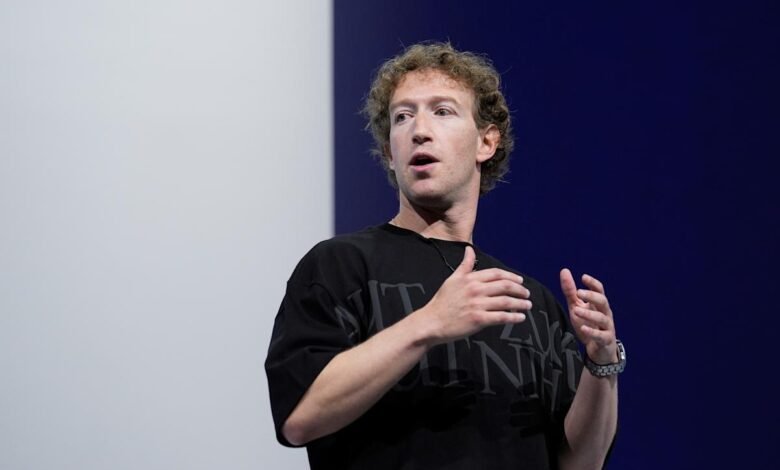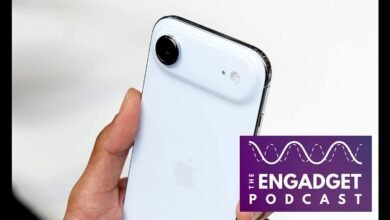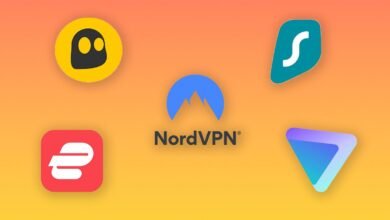‘Hypernova’ smart glasses, AI and the metaverse

Meta Connect, the company’s annual event dedicated to all things AR, VR, AI and the metaverse is just days away. And once again, it seems like it will be a big year for smart glasses and AI.
This year, the event will take a slightly different format than in the past. Mark Zuckerberg is to kick things off with an evening keynote at 5PM PT on Wednesday, September 17. A developer keynote with other executives will take place the next morning on September 18, beginning at 10AM, with more talks and developer sessions to follow.
It’s not clear why Meta changed things up this year, but it is shaping up to be a particularly eventful year for Connect. We’re expecting two new models of smart glasses, including Meta’s first to have a display, as well as new Meta AI and metaverse updates. As usual, Engadget will be reporting live from Zuckerberg’s keynote at Meta HQ, but until then, here’s a closer look at what’s coming and what to keep an eye on.
New and updated smart glasses
The biggest news of the day will be Meta’s next-generation of smart glasses. The frames, often referred to by their reported internal name “,” will be the first consumer-ready glasses from Meta that have a display. We already know quite a bit about these thanks to more than a year of leaks.
While the frames are expected to have a small display on one side, they won’t offer the kind of immersive augmented reality experience we’ve seen on Meta’s . Instead the display will allow you to view things like notifications and photo previews. The glasses will also come with a dedicated wristband, similar to what the company showed off with Orion, that allows the wearer to control specific features through hand gestures.
The EMG wristband that’s part of the Orion prototype.
(Karissa Bell for Engadget)
The glasses, which may officially be called “Celeste,” are expected to go on sale later this year, will likely cost around $800. They could be sold with Prada branding, which would be in line with Meta’s longtime EssilorLuxottica partnership, CNBC. Given the much higher price tag — most of Meta’s Ray-Ban-branded glasses cost around $300 — it seems Meta is positioning this as a higher-end product that will have a more limited appeal. Analyst Ming-Chi Kuo has Hypernova will have a “negligible” share of the overall smart glasses market.
It also sounds like we could see a new version of Meta’s smart glasses without a display with an updated version of the Ray-Ban Meta smart glasses. There could be two versions for sunglasses and clear frames, according to . The new glasses are reported to have improved cameras and battery life, and support new AI capabilities.
We could also see new third-party glasses integrations. As UploadVR recently early versions of the Connect schedule for developers seemingly confirms that Meta is getting ready to give developers access to its smart glasses. Up to now, the Ray-Ban Meta and Oakley glasses have mostly been limited to apps within Meta’s ecosystem (with a few exceptions like Spotify and Audible). Allowing more developers to start experimenting with the platform could bring even more functionality to the existing lineup of glasses.
Meta AI
As with other recent years, AI will be a major theme throughout. Meta AI has monthly users (something Zuckerberg will surely remind us of) and I’m expecting to see new features for Meta AI both on the company’s glasses and within its apps. Business Insider the company has been working on new lineup of non-English speaking “character-driven” bots for its apps. (Meta’s character-centric chatbots have also faced scrutiny, with the company recently blocking teens’ access to many user-generated characters amid growing safety concerns.)
Outside of Meta’s chatbots, I’m hoping Zuckerberg will talk more about his vision to create “superintelligence.” As I wrote in July, his that outlined his vision was confusing at best. The CEO has recently reorganized Meta’s AI teams around the idea, and has been on a very expensive to recruit executives and researchers for the effort.
At the same time, Zuckerberg could use Connect to shore up expectations around its Llama models. The company’s larger Llama 4 model has and reports suggest Meta’s engineers have been struggling to improve it. There are other signs that Zuckerberg may be from open-source AI.
What about the metaverse?
While the metaverse has taken somewhat of a backseat to AI in recent years, it wouldn’t be Connect without some VR-related news. In a recent Instagram post, Meta CTO Andrew Bosworth teased “metaverse software” updates related to Horizon Worlds at Connect. The company recently offered to developers of its plan to bring AI-powered NPCs to the metaverse, and I expect we’ll hear more about how generative AI could help shape the metaverse.
And while there are no new Quest headsets expected, we could hear more about those third-party VR headsets that will run Meta’s VR software. Last year, the company announced that were working on Meta Horizon OS headsets. We haven’t heard too much about these devices since, but there was this year that suggested ASUS would be the first to launch, and that it would include face and eye tracking features.
Another intriguing possibility is an update on Meta’s holographic Codec avatars we got of last year. While Meta’s current lineup of VR headsets don’t have the necessary face and eye-tracking sensors to support the tech, UploadVR Meta could show off a more “rudimentary” version of the avatars that could run on the Quest 3 or even work in conjunction with video calls on WhatsApp and Messenger.




